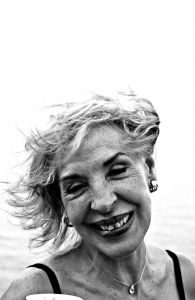Eating Disorder Stereotypes Leave Older Victims Without Support
 For years, people have thought anorexia and bulimia were strictly teenage girls’ diseases, but recent statics show otherwise.
For years, people have thought anorexia and bulimia were strictly teenage girls’ diseases, but recent statics show otherwise.
In fact, Cynthia M. Bulik, director of the Eating Disorders Program at the University of North Carolina, Chapel Hill, says since 2003, half of the program’s patients have been adults.
In a New York Times article, 58-year-old yoga teacher Judith Shaw discusses her experience with an eating disorder as an adult. She states, “I was looking for something to validate myself. Somehow, the weight loss, and getting harder and firmer and trimmer and fitter, and then getting recognized for that, was fulfilling a need.”
Shaw’s desire to become healthier quickly spun out of control, becoming dangerous. But never once did her doctors express concern. Instead, they consistently praised her efforts to keep her weight down. And when she developed anemia and osteoporosis, they assumed it was due to menopause, not malnourishment.
It wasn’t until she injured herself in a yoga class that Shaw’s instructor urged her to get help. At that time, Shaw was 5’3″ and only 85 pounds. She said she wished someone had reached out to her, but no one did–not her husband nor any of her friends.
Adults with an ED aren’t getting the support they need
Because people seldom associate eating disorders with older adults, older women suffering from the disease often don’t get the support they need from their family, their friends, or even their doctors. Their risky behaviors are overlooked, and they are left to battle the disease on their own.
It’s important for all of us to keep in mind that eating disorders can affect anyone, regardless of age or gender. If you see someone you love displaying any of these warning signs, reach out to him or her. Don’t assume that because your loved one doesn’t fit the stereotypical age demographic of an eating disorder victim that he or she is not battling anorexia or bulimia.
 Eating Disorder Self Test. Take the EAT-26 self test to see if you might have eating disorder symptoms that might require professional evaluation. All answers are confidential.
Eating Disorder Self Test. Take the EAT-26 self test to see if you might have eating disorder symptoms that might require professional evaluation. All answers are confidential.